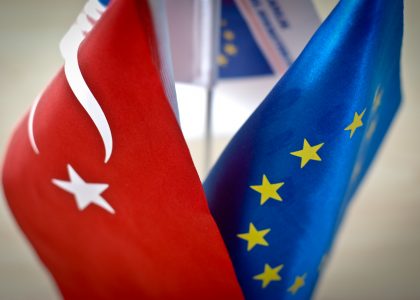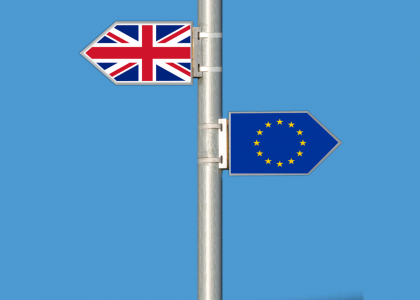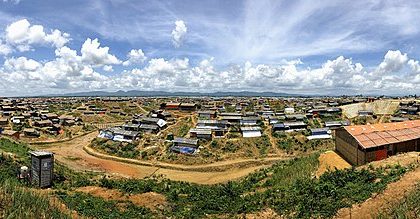UEA student, Gioia Archetti, underlines the importance of the inclusion of children with disabilities in educational contexts and explores the role of EU disability policies. She argues that the inclusion of children with disability in mainstream schools should be a central priority of EU educational policies.
In the 1970s, special schools started to be criticized in many Western European countries for segregating students with disabilities and limiting their academic and social opportunities. Segregated schools for individuals with disabilities have proven detrimental not only to students with disabilities themselves but also to their peers. Such separation fosters an environment of exclusion and perpetuates societal stigmas surrounding disability. It undermines the principles of inclusivity and diversity, hindering the holistic development of all children involved.
Over the last 30 years, inclusive education has become a worldwide key goal of education policies. Inspired by international declarations and conventions, countries from all continents have embarked on a journey towards inclusive education, which has become a global concept.
The Convention on the Rights of Persons with Disabilities (UNCRPD), in its Article 24, promotes inclusive education by prescribing the avoidance of segregation in special classes and integration of all students with disabilities in mainstream environments. To achieve inclusive education under UNCRPD, states must abandon the track education systems – mainstream and special/segregated – and implement access to mainstream schools for students with disabilities, as the UN Committee on the Rights of Persons with Disabilities deliberates.
European Union’s policies
In the European Union, most countries have started to work together to make their education systems more inclusive. Efforts were driven by the implementation of the UNCRPD, leading to increased numbers of children and young persons with disabilities in general education in Europe.
The UNCRPD has been ratified by the EU and its member states. The Convention clarifies disability rights while requiring additional measures for implementation. It contributed to the development of more comprehensive disability laws at EU and national levels.
The Treaty on the Functioning of the European Union emphasizes the fight against all forms of inequalities and discrimination through Articles 8 and 10. Additionally, the European Pillar of Social Rights, with its 11th and 17th points, establishes principles related to education and lifelong learning, highlighting the importance of quality education and training that is inclusive and easily accessible.
The EU has also adopted regulations and recommendation, and is monitoring Member States’ compliance, sanctioning their negligence or incorrect implementation. An example is the Recommendation CM/Rec(2013)2 of the Council of the EU on ensuring full inclusion of children and young persons with disabilities into society, in which it urges member states to achieve more inclusive educational settings, including children with disabilities in mainstream schools.
Moreover, the Commission has launched its Strategy for the rights of persons with disabilities 2021-2030, following on from the previous European Disability Strategy 2010-2020. The Strategy focuses on empowering persons with disabilities and aims to implement the UNCRPD at both EU and national levels, notably by complementing and supporting action by the Member States. It also aligns with the objectives outlined in the United Nations 2030 Agenda for Sustainable Development, specifically goals 3, 4, 10, and 11.
The EU Strategy on the Rights of the Child is a new comprehensive EU policy framework to ensure the protection of rights of all children, and secure access to basic services for vulnerable children. This strategy has been developed for children and with children It notably requires ‘access to inclusive, non-segregated, quality education, which should be guaranteed, amongst others, through a non-discriminatory treatment regardless of racial and ethnic origin, religion or belief, disability, nationality, residence status, sex and sexual orientation’.Inizio modulo
Permanent organisational structures have also been created. The European Agency for Special Needs and Inclusive Education (EASNIE) supports inclusive education in Europe by providing EU member states with expertise and resources. Therefore, promoting inclusion also results in better accessibility to school facilities, aligning with EU priorities for accessibility. Moreover, Eurydice functions as a network to analyse the organizational structure and functioning of education systems across Europe, conducting comparative studies on specific topics, and providing indicators and statistics related to education.
The limits of the EU framework
Despite undeniable institutional efforts from the EU, the implementation of inclusive education policies is not consistent among EU member states. Ratifying the Convention on the Rights of Persons with Disabilities posed challenges due to unclear competencies between the EU and its Member States, risking gaps in protection for persons with disabilities.
Although regulations mandate the elimination of special schools, 23 Country Reports reveal that the education of disabled children in segregated settings still endures – including residential institutions, special schools, special classes within regular schools, or home-schooling.
As one of Eurydice’s last reports shows, only Portugal, Italy, Hungary, Spain, Greece, Sweden, Ireland, and Cyprus don’t have segregated schools. While South European countries (Italy, Greece, and Cyprus) have good inclusion outcomes, it is not a coincidence as they don’t have special schools. For instance, in Italy, children with disabilities experience the lowest levels of limitation in their daily activities.
So, what needs to be done?
Today, in almost all European countries, the ‘multidirectional model’ is in force, which gives the choice between ordinary classes or special schools. Since 2004 already, Italy, Spain, Portugal, and Greece have implemented inclusion in schools at all levels, and without distinction, providing specific facilities only for severe cases of disability requiring extraordinary attention. France has also followed this direction after the approval of the 2005 Law on the equal rights of people with disabilities in schools, universities, and workplaces. In Norway, Finland, and Sweden, the multidirectional model remains, but fewer and fewer parents choose the path of special classes, preferring inclusion in mainstream classes attended by students of all kinds.
Since the European Commission encourages member states to exchange best practices, successful examples could inspire other countries within the EU. Sharing experiences and learning from each other’s successes and challenges can contribute to the overall improvement of inclusive education across the EU.
Involving individuals with intellectual disabilities and their families in decision-making processes is also crucial. The EU has already moved in this direction, including setting strict guidelines to ensure the effectiveness of EU-funded child protection projects.
Finally, relying solely on recommendations without enforceable legislation from the EU leaves room for inconsistency and inadequacy in addressing this critical issue. Therefore, it is urgent for the EU to adopt a more proactive approach by adopting concrete directives that promote inclusive education, ensuring equitable opportunities for all students, regardless of their abilities. Only through such decisive action we can pave the way for a more inclusive and accepting society.
Gioia Archetti is an Erasmus student at UEA. She studies Political Sciences and International Relations at Bologna University and she wrote this piece for the Introduction to the EU module.
Photo credit: Lucélia Ribeiro.





